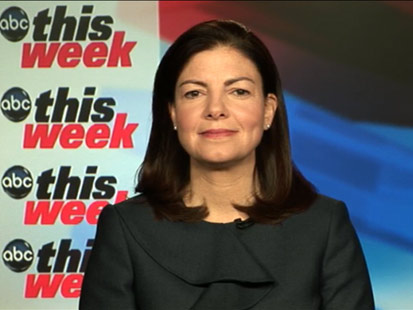Republicans Accuse Democrats of Using Hobby Lobby Fallout to 'Score Election Year Points'

Republicans fired back today at Democrats' plans to counter the Supreme Court's Hobby Lobby decision that allows a contraception exclusion for closely-held companies with religious beliefs, saying they will propose a measure of their own.
It was a dose of election year reality, dashing Democratic efforts at drawing bipartisan support for their plan.
Sen. Kelly Ayotte, R-N.H., said the dialogue has been driven away from the religious freedom rationale of the ruling and distorted for political leverage.
"I really am disappointed that my colleagues on the other side of the aisle would try to score election-year points by misrepresenting what the Hobby Lobby decision stands for" and allow American women to believe that the decision affects their access to contraception, Ayotte told reporters today.
The tagline "not my boss's business" that Democrats have used to promote their bill is misleading, Ayotte said, because nothing in the Supreme Court ruling allows an employer to interfere with a woman getting a contraception prescription.
Republicans, she said, will introduce an alternative bill that makes it "very clear that women have the same rights today to access contraception as they did before Obamacare was passed and before the Hobby Lobby decision."
The proposal, which Republicans are calling the Preserving Religious Freedom and a Woman's Access to Contraception Act, was written by Ayotte, Senate Minority Leader Mitch McConnell, R-Ky., and Sen. Deb Fischer, R-Neb., aims to clarify the law, expand access for women to have contraception and increase affordability. It also allocates funding for the FDA to study over-the-counter birth control for effectiveness.
"Our bill will reaffirm that no employer can prohibit an employee from purchasing an FDA-approved drug or medical device, including contraception," Ayotte said.
The Republican bill shares some policy objectives with the Democratic bill, introduced by Sens. Patty Murray and Mark Udall last Thursday, which seeks to mandate that employers cannot disrupt coverage for contraception or other health services that are guaranteed under federal law. This bill is up for a vote in the Senate on Wednesday, but Republicans are threatening to block it.
Senate Majority Leader Harry Reid, who last week called the Hobby Lobby decision the worst Supreme Court ruling in 25 years, criticized the Republican response.
"How long do women have to wait before Republicans will join Democrats, stand up for them?" Reid asked at the news conference. "Women should not be denied health care because Republican men are too afraid to debate the issue on the Senate floor. Women across the country are watching."
The Supreme Court's Hobby Lobby ruling, issued in late June, laid out a decision focused on contraception and rooted in the rationale that for-profit companies, characterized as people under the law, were protected from providing contraceptive coverage they deemed against their beliefs as protected under the Religious Freedom Restoration Act (RFRA).
Republican lawmakers said today that the high court's decision is rooted in RFRA. The Republican bill, they said, protects freedom of religion and a women's ability to make contraceptive choices.
"The American people know you can support religious freedom and access to contraception," McConnell said. "The goal shouldn't be to protect the freedoms of some while denying the freedoms of others. The goal is to preserve everyone's freedoms."
Ayotte pointed out that RFRA, signed by President Clinton, received the support of 16 current senators.
But for the past weeks Democrats, including some who voted for RFRA, have argued that the Supreme Court was misguided in its recent interpretation.
Sen. Barbara Boxer, D-Calif., who voted for RFRA in 1993, has been particularly vocal in the wake of the decision.
"I can tell you that was never the intent of the law," Boxer said in a Huffington Post op-ed. "The Religious Freedom Restoration Act was written to protect an individual's freedom of religion. But the conservatives on the court turned the law on its head."
Republican leaders have criticized Democrats for using this issue to sway voters in the midterm elections, but Reid has been firm in his decision that not responding to the court's "horrible decision" would be "political malpractice."